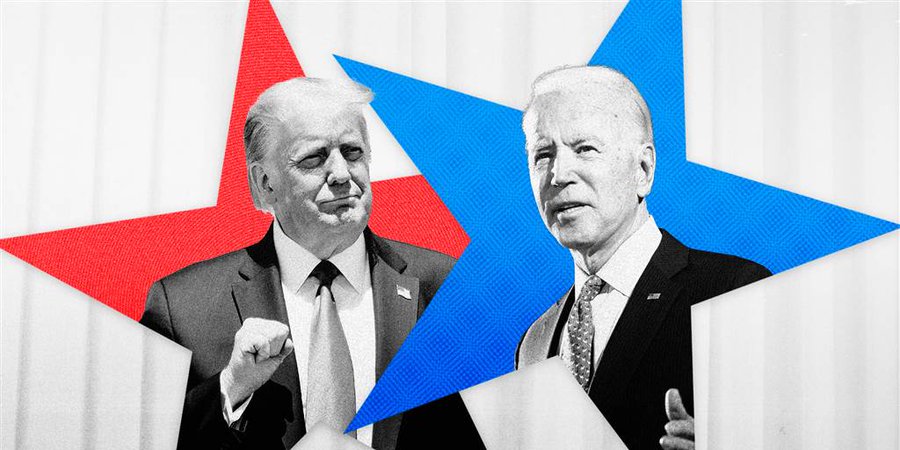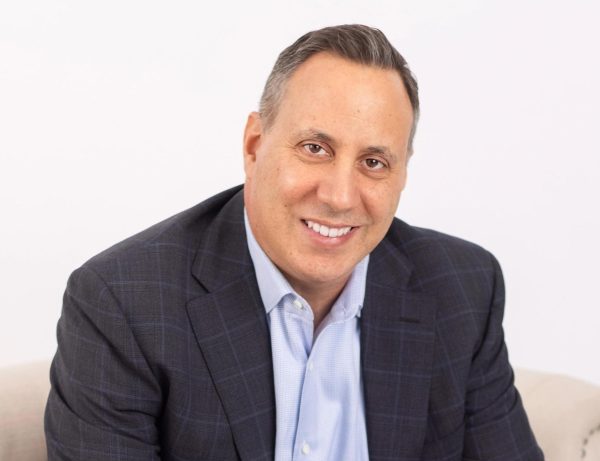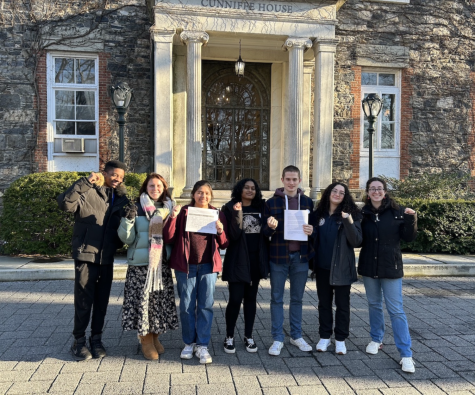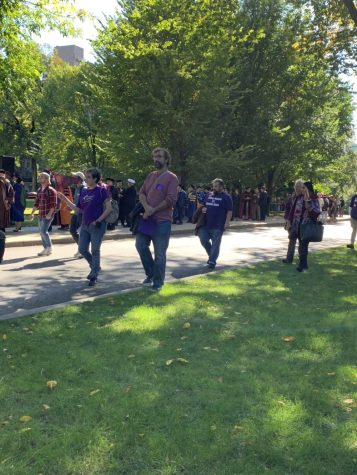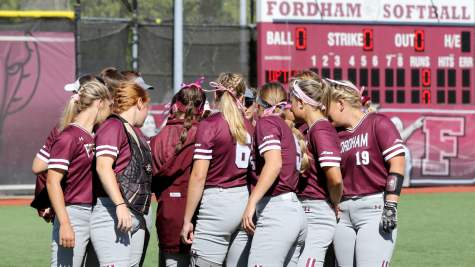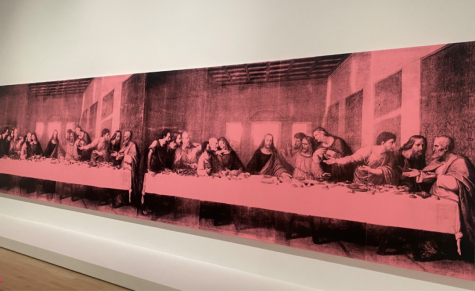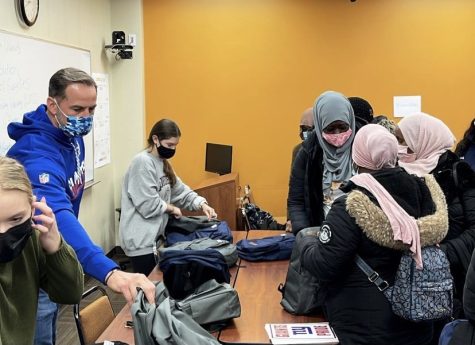First Presidential Debate Tackles COVID-19, Climate Change and Election Integrity
President Donald Trump and former Vice President Joe Biden engaged in frequent interruptions and personal attacks in their first presidential debate on Sept. 29.
The debate, which was held in Cleveland at Case Western University, came barely a month before the general elections on Nov. 3, 2020. It was the first chance for the two candidates to confront each other face-to-face this election cycle. Both were quick with rebuttals during the hour and a half of questions and open discussion, which began at 9 p.m.
“Shut up, man,” Biden told Trump early in the night. “It’s hard to get a word in with this clown,” he said later. He also called Trump “the worst president America has ever had.”
Trump was also aggressive, attacking Biden’s son, Hunter, over business dealings and drug addiction.
Biden and Trump interrupted each other repeatedly, and the moderator, Chris Wallace of Fox News, often struggled to maintain control of the debate. More than once, Wallace had to temporarily halt the proceedings to remind Biden and Trump of debate rules, which included an allotted two minutes for each candidate to respond uninterrupted to a question at the start of each new segment.
“I think the country would be better served if we allowed both people to speak with fewer interruptions,” said Wallace.
He addressed Trump multiple times for preventing Biden from speaking, at one point yelling, “Let him answer!”
Amelia Medved, FCRH ’23, secretary of College Democrats of Fordham University, said she suspects these moments might help Biden in the future.
“I think what made him look the best was the amount of trouble Donald Trump had cooperating with the moderator,” she said.
The debate was divided into six segments devoted to specific topics, with each topic receiving roughly fifteen minutes of attention. These topics included the Supreme Court, COVID-19, the economy, race and violence in our cities, candidates’ political records and the integrity of the election.
Biden repeatedly defended himself from Trump’s accusations that he is beholden to the agenda of the “radical left.” Biden was quick to assert his control of the Democratic presidential platform in response to suggestions from Trump that it had been conceived by the left wing of the party.
“Your party wants socialist medicine,” Trump said during an exchange about the future of the Affordable Care Act.
“I am the Democratic Party right now,” Biden responded.
Each candidate criticized his opponent’s view on the country’s COVID-19 response. Trump directed blame for the outbreak in the United States onto China and defended his decision to reopen businesses and schools and lift outbreak safety restrictions.
“[Biden] wants to shut down the country, and I want to keep it open,” he said.
Biden said Trump and his administration are not providing adequate support to families and businesses during the pandemic and are valuing economic recovery over public health.
“You can’t fix the economy until you fix the COVID crisis,” said Biden.
During the “Race and Violence in our Cities” segment, Biden said he believes police “need more assistance.”
After Trump accused Biden of not supporting law and order when it comes to protests over racism and police brutality, Biden said, “Violence is never the answer. Peaceful protest is.”
During this same segment, Wallace asked Trump if he would condemn white supremacy. The president did not answer and asserted his belief that violence during protests “is coming from the left.”
Trump also defended his decision to end training on racial sensitivity and critical race theory in federal agencies.
“They were teaching people that our country is a horrible place and a racist place,” he said. Biden responded that he supports this kind of training, arguing that it “makes a difference” in ending systemic racism.
The two also clashed over issues of climate change. Trump said he believes climate change is caused by carbon emissions and other man-made factors “to an extent,” but still defended his view that wildfires in California were caused by poor forest management, as well as his decision to leave the Paris Agreement. Biden promised to rejoin the agreement if he is elected.
Biden also once again tried to distinguish himself from the left wing of the Democratic Party when it comes to climate change legislation.
“I support the Biden plan that I put forward, which is different from what [Trump] calls the ‘radical Green New Deal,’” he said.
In the last minutes of the debate, candidates were asked about the integrity of the elections and whether they would accept the outcome as legitimate. Trump refused to commit to this promise, citing his concern that mail-in voting will lead to fraud. Biden, in turn, accused Trump of questioning the legitimacy of the election in order to “dissuade people from voting.”
Biden promised to accept the election results regardless of the outcome and said Trump would also have to recognize the results.
“He can’t stay in power. That won’t happen,” he said.
Claire McDonnell, FCRH ’21, president of College Democrats, said she doubted that voters who have already chosen a candidate will be swayed to change their allegiances.
“If anything, I fear that debates like tonight’s will dissuade undecided voters from voting at all,” she said. However, McDonnell also said that she has hope that the debate will lead to heightened a sense of urgency to vote for Americans.
The Fordham College Republicans have not responded to request for comment.
The next presidential debate will occur on Oct. 15 in Miami, according to a New York Times debate calendar. The first and only vice presidential debate between current Vice President Mike Pence and Sen. Kamala Harris will take place on Oct. 7 in Salt Lake City, Utah.

Abbey Delk is a junior from Wheeling, West Virginia, double majoring in English and journalism and minoring in film & television. Her career at the...





































































































































































































